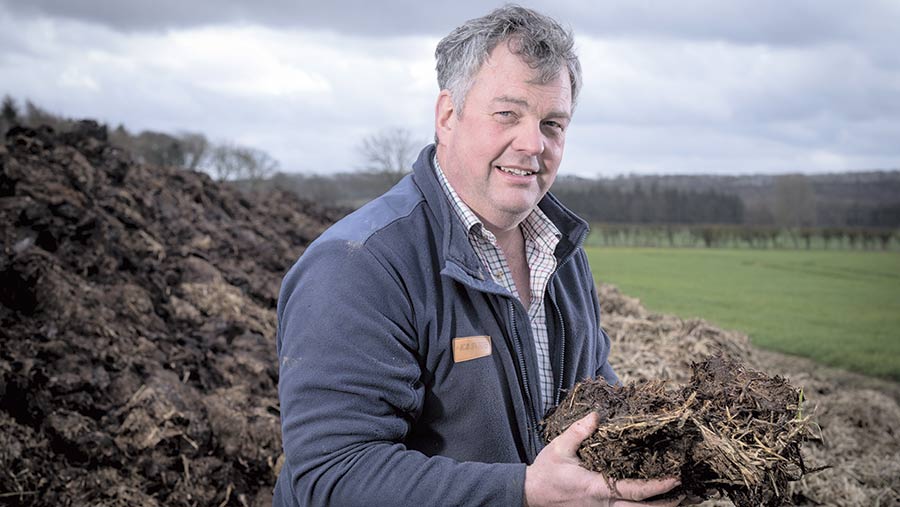Farmer Focus: Mollusc wizard lifts the lid on slugs
 © Jim Varney
© Jim Varney It’s been a pleasure to spread farmyard manure in dry conditions for once. Adding to the soil biology without damaging the structure has been a real win-win this year so far.
It occurred to me that the number of seagulls following the plough represents a health scoreboard for soil. The same thing the AHDB GREATsoils programme is trying to achieve.
In these days of ‘environmentally aware’ farming, inverting the soil seems to be well out of fashion, but adding organic material back to the soil and turning it over on a rotational basis has certainly paid dividends — the huge number of birds is surely evidence of that?
See also: A round-up of enhanced urea fertilisers and additives
The quandary, of course, is that we need animals both to produce farmyard manure and to make efficient use of grass.
Yet livestock farming is under attack for supposedly damaging the planet.
The Nirvana of picturebook landscape, cheap food and low environmental impact just doesn’t work for the practical farmer!
Poor seeds, poor result
Amazingly our spring bean crop was once again deemed ‘class-leading’ by the Processors & Growers Organisation.
This season enthusiasm for pulses may have waned a bit, as the hot dry conditions did not suit all bean crops, with yields suffering. New seed appears to be a bit short for spring beans this year.
I’m not sure reducing germination standards to enable poorer-quality seed to be used is the right way forward? ‘Well sown-half grown’, applies to the seed as well as soil conditions.
A recent slug masterclass, held in York by the excellent Future Food Solutions, brought some intriguing facts from globetrotting mollusc wizard Dr Jenna Ross.
Dr Ross, along with other excellent presenters, really explained all the issues of habitat, cultural controls and loss of actives.
The life cycle of a slug is not everyone’s idea of an entertaining topic, but she really brought it to life.
Apparently there are lots more harmful slugs and snails out there in the world, and we need to keep them away from these shores.
UK bio-security needs to be ramped up. Across the pond it seems it’s not only Mexicans that Donald Trump is striving to keep out.
Richard Wainwright farms 510ha in Ryedale, on the southern edge of the North Yorkshire Moors. With soil types ranging from heavy clay loam to limestone brash, the family partnership grows winter wheat, winter barley, oilseed rape, spring beans and rotational grass leys. The farm also runs a large beef fattening unit.

